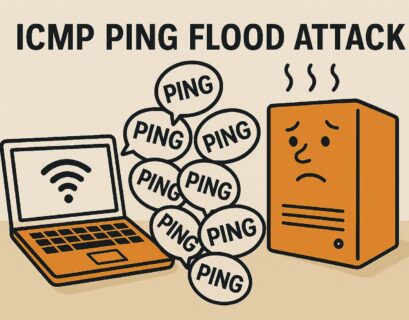At first glance, you might think that there is nothing in common between DNS and SEO, but you will be very wrong. Yes, the DNS and SEO are strongly connected. Having a domain that resolves faster will be translated to a superior user experience for your visitors, which will be seen as a great SEO sign. Google and other searching engines love fast-loading domains, so learning more about DNS is really worth it!
Table of Contents
What does SEO (Search Engine Optimization) mean?
The SEO abbreviation stands for Search Engine Optimization, and it is the process of improving your website so that it can rank better on search engines’ results. The search engines like Google, Bing, Baidu, Yahoo, and Yandex create their own algorithms based on factors like content quality, keywords used, loading speed, and others to evaluate sites and rank them on their search pages in their free results. They usually have paid results in the beginning and free results after that. Site owners compete for the free results by constantly improving many aspects of their sites.
Some of the top SEO factors that search engines take into consideration are:
- Security – does the site uses a TLS certificate?
- Loading speed – how fast do the domain and all the elements of the site load?
- Mobile-friendliness – how well is it optimized for mobile (smartphone) use?
- Content quality – how well are the texts and articles written, and how well are the keywords selected?
- Crawlability – how easy is it for search engine bots to search the content on the site?
- Website structure – is there a good structure of menus, categories, articles, etc.?
- Backlinks – are the important sites that lead to the particular site?
- User experience – how good is the total experience for the visitors of the site?
The algorithms are not public, but SEO specialists have already understood many of the factors that strongly improve a site’s ranking. Those that we just mentioned are vital for getting a good position.
What is DNS (Domain Name System)?
Domain Name System, or DNS for short, is a decentralized hierarchical structure that links domain names (computers, services, resources, etc.) to their IP addresses (IPv4 or IPv6 addresses). It also links much more additional information information.
People like to compare it to a phonebook in which they can search for domain names like Wikipedia.org and find the IP addresses behind them without remembering long strings of numbers like 91.198.174.192 or 2620:0:862:ed1a::1. It makes everything easier both for humans and machines.
DNS was created in 1983 by Paul Mockapetris from the Internet Engineering Task Force – IETF. The main purpose of the DNS was to change the ever-growing HOSTS.TXT file that people needed to use to find hosts (computers) and to pave the road to the modern interconnected network called the Internet that was just getting popular at that time.
DNS history. When and why was DNS created?
Every time when somebody requests a new domain, his or her browser or application will perform a DNS query for the domain’s IP address. The request will travel a long way. First, it will visit the highest level of the DNS hierarchy called DNS root servers. Then, they will direct to the correct top-level domain server (TLD), based on the extension of the domain like .com. Finally, the TLD server will point to the corresponding authoritative name server, and finally, that last server can answer the DNS query.
You can see that there are many stops that a DNS query makes.
Does DNS service affect SEO, and how?
There are several ways how DNS could affect SEO results. Some are obvious, and others are not so clear. Let’s explore them one by one.
Site loading speed
The DNS is the first process that happens before a website gets loaded inside the visitors’ browser. As we already mentioned, the DNS resolution process is a long process that will add up to the total time that the visitor experience. There is a bit difference between an average of 20 milliseconds with a good DNS provider from all around the world or 200 milliseconds to 500 milliseconds leaving everything to the domain registrar.
Experience Industry-Leading DNS Speed with ClouDNS!
Ready for ultra-fast DNS service? Click to register and see the difference!
Availability
Experiencing DNS outages often and for a long time most definitely affect your site SEO negatively. If a search bot tries to reach your site and it can’t do it, it will report this event. First, it won’t be able to index newly added pages quickly. Second, it will take a note about general availability that could worsen your site’s position.
DNS providers have multiple features to provide excellent DNS availability that includes: providing multiple name servers, Anycast that uses a single IP address for all of them, DDoS protection, DNS monitor, DNS Failover, and more.
Multiple locations
A DNS provider can offer you multiple points of presence (PoPs) that you can use and set name servers. It will significantly increase the speed for the visitors by shortening the route from them to the name servers. At CLouDNS we have one of the best Anycast DNS networks with 60+ PoPs located on 6 continents. All of our Premium DNS, DDoS Protected DNS and GeoDNS plans include Anycast DNS as well as many more, such as DNSSEC, DNS Failover, Reverse DNS, etc.
DNS migration
If the DNS migration is performed correctly and the proper measures were taken, there should be no feelable difference for the users nor the search engines’ bots. The problem occurs only if the TTL values of the previous DNS records are too high, and those DNS records won’t be deleted from the DNS caches of recursive name servers for long. Until the caches get updates, they will still point to the older address, resulting in downtime.
Changing of the IP address
If you have to change the IP address of your site, this should not negatively impact SEO as long as it is managed properly. Ensure that the transition is seamless by updating DNS records and monitoring performance to maintain high availability and user experience.
Optimizing DNS for SEO
Choosing a Fast DNS Provider
Selecting a reliable and fast DNS provider is crucial for improving your site’s DNS resolution time. Providers with optimized global networks and high response speeds can significantly reduce latency, ensuring faster and more consistent access for users. ClouDNS is a standout option, offering a robust global Anycast network with DDoS-protected DNS servers, DNSSEC for enhanced security, and flexible options like Secondary DNS, making it an ideal choice for high-performance, secure, and SEO-friendly DNS management.
Setting Up CDN and DNS Configuration
A Content Delivery Network (CDN) can be used in conjunction with DNS to improve your site’s loading speed. CDNs store cached versions of your site’s content on servers around the world. By integrating a CDN with your DNS provider, users can load your content from the server closest to them, reducing load times and improving SEO.
How to create your own CDN using DNS
Implementing DNS Prefetching
DNS prefetching is a browser feature that helps pre-resolve domain names that users are likely to click next. By adding the <link rel=”dns-prefetch” href=”//example.com”> tag, you instruct browsers to look up the DNS information for that domain before the user even clicks it, reducing potential latency.
Tip: Use DNS prefetching for external resources on your site, such as analytics, social media, and third-party widgets, to reduce delays.
DNS and International SEO
For websites with international audiences and global services, DNS configuration can impact international SEO strategies. Utilizing country-specific domains (ccTLDs) or regional subdomains helps search engines identify your target audiences. However, misconfigurations can lead to incorrect geotargeting, hurting your rankings in specific regions.
Tip: Use Google Search Console’s geotargeting settings and configure DNS properly to avoid conflicting signals.
Conclusion
In conclusion, DNS plays a pivotal role in enhancing SEO by directly impacting site speed, availability, and overall user experience. With optimized DNS settings, including faster DNS resolution, multiple locations, and proper IP address management, you’re not only improving user satisfaction but also signaling quality to search engines. Investing in a reliable DNS provider ensures smoother site operation and helps your site perform well across global search rankings. To truly benefit from your DNS setup, stay proactive about performance monitoring and consider advanced configurations like DNS prefetching and CDN integration.






